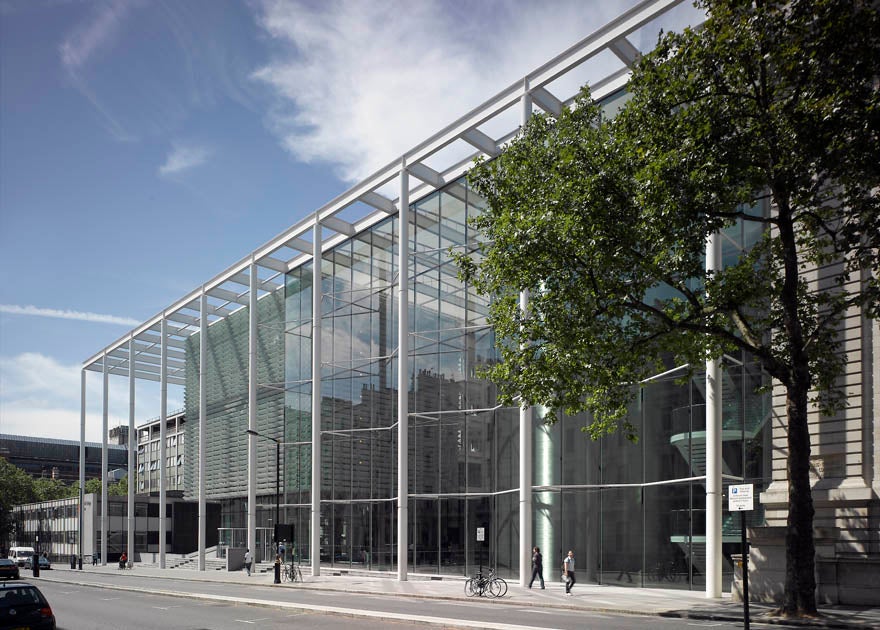Imperial College London

Overall ranking: Placed 4th out of 126 in the Complete University Guide.
History: Established in 1907 as part of the University of London. In 1997 it combined with Charing Cross and Westminster Medical School and the Royal Postgraduate Medical School. Merged with Wye College, University of London, and Kennedy Institute of Rheumatology, West London, in 2000 and in 2007 became completely independent of the University of London.
Address: Eight campuses in central and west London, Berkshire, and Kent. Main campus is in posh South Kensington across the road from the Royal Albert Hall and next to Hyde Park.
Ambience: All the benefits of being in London's cultural heartland, with the drawback of the expense.
Who's the boss? The Sir Keith O’Nions became president and rector in 2010. Sir Keith's background lies in geology, and he is the former chief scientific advisor to the Ministry of Defence.
Prospectus: 020 7589 5111 or download it here.
UCAS code: IMP 150
What you need to know
Easy to get into? No. Average UCAS points on entry is 520. Approximately six applications per place and very few get in through clearing.
Vital statistics: A college for brainy anoraks, with a tip-top reputation. Boasts highly prestigious staff, and has around 14,000 full-time students. Nearly a third of graduates go straight on to higher degrees, with a massive focus on research. Men outnumber women by nearly two to one. Imperial is one of 24 Russell Group universities, dedicated to the highest levels of academic excellence.
Added value: The Sir Alexander Fleming building and a sleek sheer-glass fronted business school have been designed by Lord Foster, giving lustre to the Victorian and sixties' campus. Good sports facilities: in April 2006, a new 'Ethos' sports centre opened, complete with a climbing wall, sports hall, gym, swimming pool, sauna, steam room and spa. Imperial also boasts the largest student cinema screen in the country. The new Imperial Centre for Translational and Experimental Medicine at the college's Hammersmith site has recently become the flagship building for patient centred-research.
Teaching: Placed 41st out of 126 in the Complete University Guide 2016.
Research: Ranked 4th in the Research Assessment Exercise.
Graduate prospects: Things are looking good- ranked first with a massive 89.9% of students finding graduate level employment upon completion of their degree.
Any accommodation? Yes, a massive choice of options, ranging in price from £60 per week for a space in a triple shared room to £250 for an en-suite single. The South Kensington site built in the 60s looks a little grotty, but its gardens are great in the summer.
Cheap to live there? Heck no. Local rents averaged a whopping £145 per week last year, excluding bills.
Transport links: All campuses are near bus, rail or tube stations.
Fees: £9,000 per year for full-time home and EU undergraduates for 2013 entry.
Bursaries: Full-time home students can apply for a financial support package which will vary depending on household income. There are also a number of universal and departmental scholarships available.
The fun stuff
Nightlife: Da Vinci's in the Union Building is popular on a Thursday when it offers the best-priced cocktails for miles while the Union Bar is small but designed in a traditional pub style. Otherwise, head out into the big bad city and there are endless options for 24-hour entertainment.
Price of a pint: £3.60 on average across London.
Sporting reputation: Ranked 18th in the BUCS league table, with the medics team at 96th.
Calendar highlight: No undergrad wants to miss the Summer Ball. This year's theme is 1920s Prohibition in a nod to Gatsby and will involve a dazzling funfair and fireworks set against the backdrop of the Queen's Tower. Previous acts and DJs to perform have included Labrinth, Tinie Tempah, Klaxons, Zane Lowe, Laura Marling and Chase & Status.
Notable societies: Recreational societies offer students the chance to try fire juggling, sky-diving and caving, while the LGBT society here is particularly strong.
Glittering alumni: HG Wells, writer; Brian May, guitarist with Queen; scientist TH Huxley; Sir Alexander Fleming and Sir Ernst Chain, discoverers of penicillin.
Alternative prospectus: www.union.ic.ac.uk/media/ap
Join our commenting forum
Join thought-provoking conversations, follow other Independent readers and see their replies
Comments
Bookmark popover
Removed from bookmarks